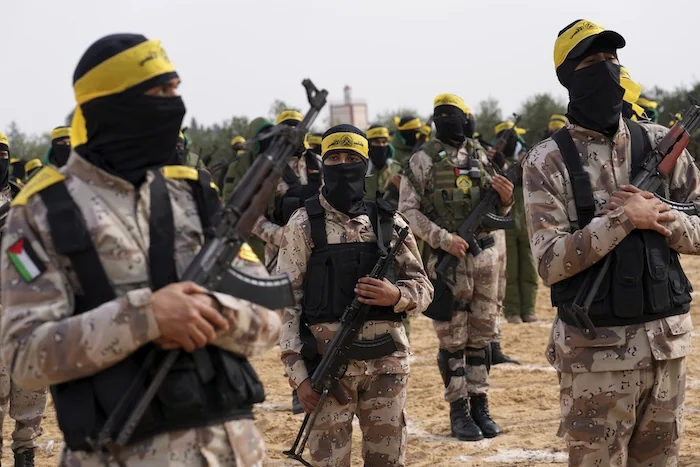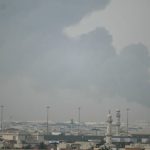Israel‘s decision to begin arming an anti-Hamas militia in Gaza poses long-term risks, the primary of which is the possibility that they could be used against Israeli soldiers and civilians.
Prime Minister Benjamin Netanyahu confirmed on Thursday that Israel has begun arming the militia known as the Popular Force, which is led by Yasser Abu Shabab, who denies having Israeli support, in an attempt to create an alternative to Hamas for the future governance of Gaza.
Israel has a history dating back several decades of backing “any number of groups and supporting them in order to play them off against other groups” throughout the region, Aaron David Miller, a longtime State Department official, told the Washington Examiner.
The Israelis supported the South Lebanese Army in the 1980s, supported the Druze community in Syria, and helped prop up Hamas both prior to its founding decades ago and by allowing the Qataris to continue giving Gaza hundreds of millions of dollars prior to the Oct. 7 attack. The decision to allow Qatar to provide funds for Hamas, ostensibly for governing and bettering the lives of civilians, ultimately proved to have disastrous consequences.
“This is a part of a pattern which I think reflects the sort of expedient view, rather than an overall broad strategy,” Miller, now a senior fellow with the Carnegie Endowment for International Peace, added.
Israeli opposition leader Yair Lapid warned that “the weapons going into Gaza will eventually be pointed at Israeli soldiers and civilians.”
Similarly, Seth Frantzman, an adjunct fellow at The Foundation for Defense of Democracies, argued that it’s a part of “the larger story we see in the Middle East that is the long history of arming militia groups,” which has not resulted in “a great track record.”

The U.S. also had a questionable track record of backing sides in Middle Eastern conflicts, including providing support to the mujahideen in Afghanistan during their war against the Soviet Union, only for that group to morph into the Taliban, which paved the way for Al-Qaeda to plan the September 11, 2001, attack.
The larger question on the subject, however, is about who will govern the Gaza Strip once the war ends, which the Israeli government has yet to clearly articulate.
They don’t want Hamas to run Gaza anymore, but also oppose the Palestinian Authority, which governs in the West Bank, and “they don’t have a good third option because there isn’t a good third option,” Frantzman, who recently wrote a book about the war, told the Washington Examiner. “I think the big problem with the Israeli government’s approach is that they don’t seem to have, or have publicly come up with, a long-term strategy in which there is some other civilian/military organization that will run Gaza for the next decades.”
Abu Shahab is believed to command a relatively small group concentrated in the southern city of Rafah. He was accused by Hamas earlier in the war of trying to divert humanitarian aid, though he has argued he was taking only the goods needed to feed himself and his family, according to the Wall Street Journal. Hamas cracked down on the Popular Force, including killing Abu Shabab’s brother.
There is also a possibility that by arming Abu Shabab, it could put them in Hamas’s crosshairs, leading to future attacks. Hamas views him as a criminal and has accused him of being an Israeli collaborator.
Former Israeli defense minister Avigdor Lieberman, a political opponent of Netanyahu who now heads the Yisrael Beiteinu party, revealed earlier this week that Israel is arming an anti-Hamas militia in Gaza, which Netanyahu confirmed on Thursday.
“On the advice of security officials, we activated clans in Gaza that oppose Hamas,” Netanyahu said. “What’s wrong with that? It’s only good. It only saves the lives of IDF soldiers.”
Abu Shabab “categorically reject[ed]” receiving weapons from Israel in a statement posted on social media.
Israeli leaders have said one of their primary objectives of their war against Hamas in Gaza is to ensure it is removed from governance in Gaza, though they haven’t articulated a clear strategy as to who will be a part of it. The war was in response to Hamas’s Oct. 7 terrorist attack in Israel that resulted in the deaths of roughly 1,200 people and the kidnapping of another 250 others. Hamas is still holding more than 50 of those hostages.
NETANYAHU CONFIRMS ISRAEL BACKING PALESTINIAN MILITIAS FIGHTING HAMAS IN GAZA
Israel’s military is believed to have killed more than 50,000 Palestinians, a tally that includes both civilians and militants. Much of the infrastructure has been destroyed, and Palestinians are desperately in need of humanitarian aid.
A private U.S. contractor group is leading the new aid strategy, which calls for Palestinians to come to aid distribution centers in southern and central Gaza.























